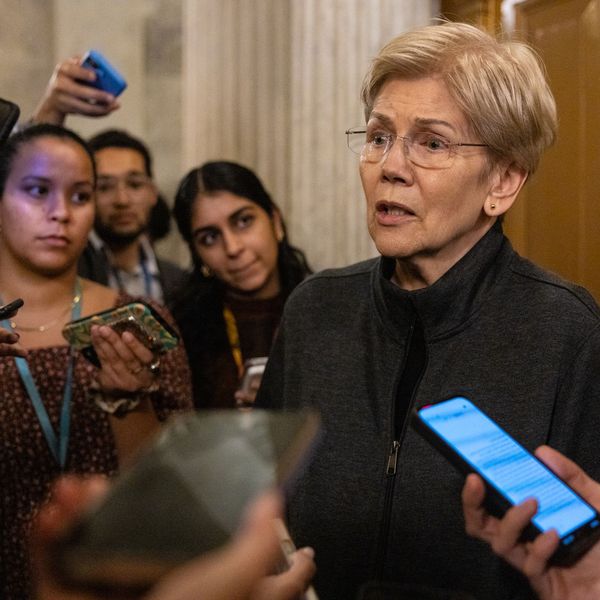Think the election season ended on Nov. 6, 2012? Think again.
The shadowy super PACs and front groups that polluted the airwaves with political ads last year are already raising millions from corporations and billionaires to batter television viewers with a new wave of ads.
Earlier this week, Karl Rove's super PAC American Crossroads attacked actress and political activist Ashley Judd, who is contemplating a Senate run in Kentucky. And former Obama campaign hands are lining up dark-money donors to support a public relations push for implementation of health care reforms.
The thought of having to endure another round of shady and dishonest political ads might make you queasy. But relief could be closer than you think.
A long-dormant rule within the 1996 Telecommunications Act gives the Federal Communications Commission the authority to mandate disclosure of the funders behind political ads.
According to the rule, political ads must "fully and fairly disclose the true identity of the person or persons, or corporation, committee, association or other unincorporated group, or other entity" paying for them.
In 2011, communications law expert Andrew Schwartzman petitioned the FCC to enforce this disclosure requirement. As the disclosure rule is on the books, the FCC already has the authority to act, argued Schwartzman, who now serves as a legal adviser to Free Press.
In a Nation op-ed on Thursday, Former FCC Commissioner Michael Copps added petrol to the fire. Copps wrote that all the agency needs is a modest update of the rules. "Using the normal FCC notice-and-comment process," Copps wrote, "this needn't take longer than 90 days."
But the FCC has ignored Schwartzman's petition and Copps' call for action.
For many Washington insiders, toxic ads are just part of the political landscape. They're the engine that powers an influence industry that has enriched legions of political consultants and media buyers -- to the tune of more than $3 billion in political ad buys in 2012 alone.
The will to confront campaign finance issues, expose the dark money behind political ads and enforce the rules won't come from inside D.C. but from people like you and me.
The type of disclosure Schwartzman and Copps call for would require identification of ads' principal funders within the actual ads. For example, it would let viewers know that an ad from a group that calls itself Concerned Taxpayers of America is merely the creation of two multi-millionaires -- the owner of a Maryland concrete company and a New York hedge-fund manager.
While such a requirement may not solve our nation's crippling campaign finance problems, that kind of transparency would force many of the worst actors under the lights. And that could give many Americans the information they need to decide whether a political message is true, and the messenger credible.
The FCC hasn't enforced this rule in nearly 20 years. It's time for the agency to act.


